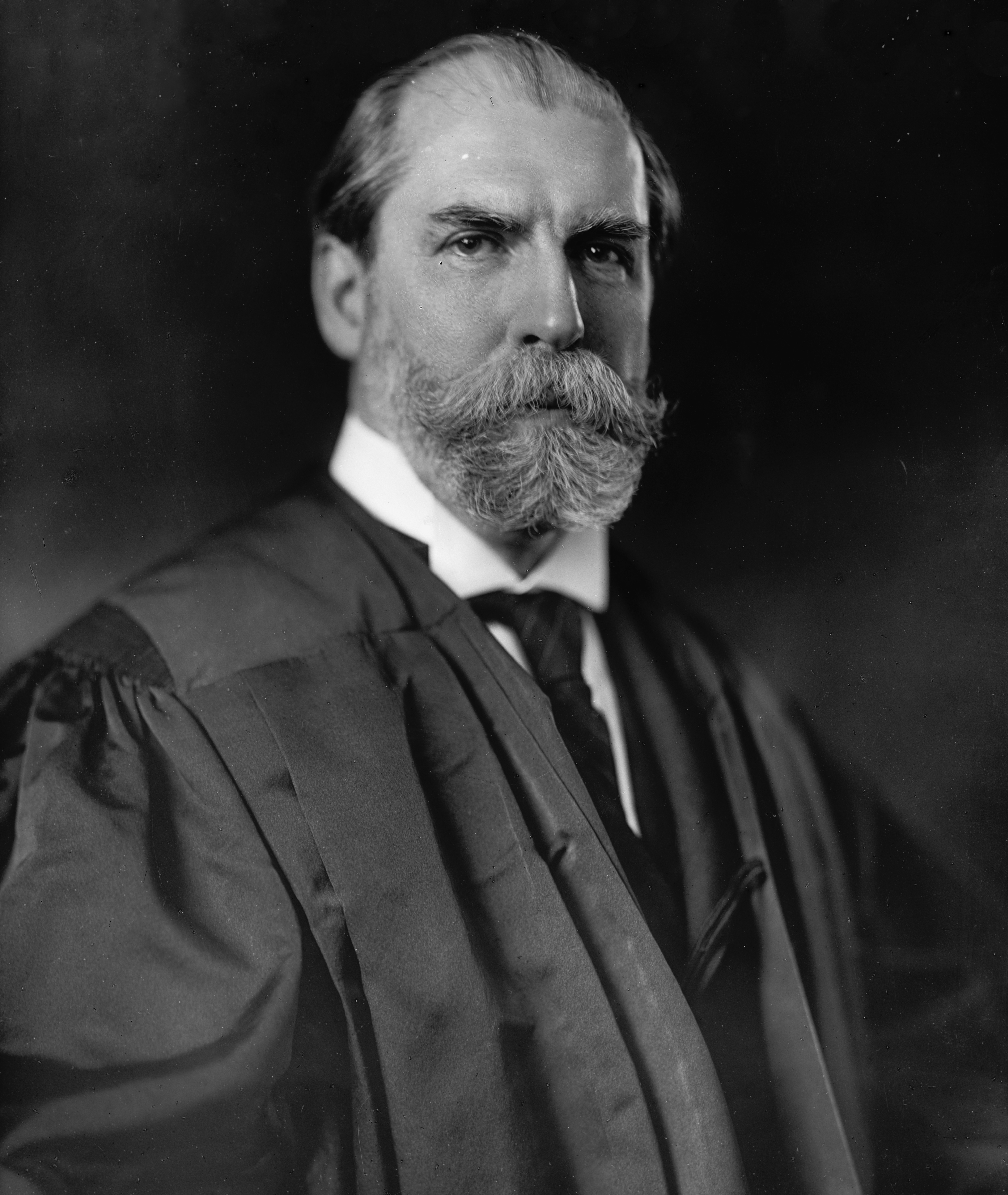Hughes, Charles Evans (1862-1948), served as chief justice of the United States from 1930 to 1941. Hughes guided the Supreme Court during one of its most turbulent periods and is considered to have been one of the country’s great chief justices. 
During Hughes’s early years as chief justice, the Supreme Court held many of President Franklin D. Roosevelt’s New Deal laws to be unconstitutional (see New Deal ). The court ruled the laws violated the rights of states and of property owners. Hughes resisted strongly when the president tried to “pack” the court with justices who supported the New Deal (see Roosevelt, Franklin Delano (The Supreme Court) ). But later, in response to pressure from the executive branch, Hughes led the court in overturning the earlier anti-New Deal rulings and in focusing more on the protection of civil rights and civil liberties. Hughes became well known for his opinions that upheld human liberties.
Hughes was born on April 11, 1862, in Glens Falls, New York. He graduated from Brown University and from Columbia University Law School. He attracted attention in 1905 when he was counsel for the New York legislative committees that investigated the gas industry and the insurance business. Hughes’s fairness and thoroughness in exposing major scandals led to his election as governor of New York in 1906. He won a second term in 1908.
Hughes was appointed an associate justice of the Supreme Court of the United States in 1910. He resigned in 1916 to run for the presidency as a Republican but lost by a small margin to President Woodrow Wilson. Hughes was secretary of state from 1921 to 1925. He initiated the Dawes Plan to relieve Germany from its crushing war debts after World War I (see Dawes Plan ). In 1928, he became a judge of the World Court. President Herbert Hoover reappointed him to the Supreme Court in 1930. Hughes died on Aug. 27, 1948.
